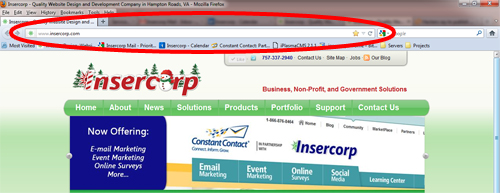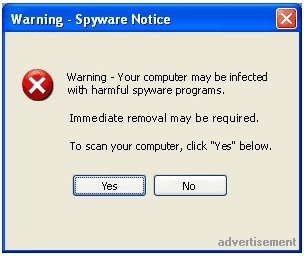
With more and more "social networking" websites emerging every day comes more and more scams and compromised security. It is becoming more difficult for the average Internet user to tell whether or not certain websites are legitimate, and even legitimate websites get hacked.
When you are creating an account to sign up for a website or service, you should think about creating a separate e-mail address that you use only for creating accounts on websites such as Facebook, Twitter, etc. This will cut down on spam, and if the website you are signing up for is malicious or it gets compromised, your real e-mail address will be safe. For example, if your e-mail address is [email protected], you could sign up for a free e-mail account at gmail and call it [email protected]. You don't even ever have to login to that account - but just remember what you named it so you can keep using it to open new accounts on websites.
If a website you belong to gets compromised, and their passwords are not encrypted, then your e-mail address, password, and other information may end up in the hands of hackers or cyber-terrorists. In order to protect yourself online, you should make sure to create different passwords for every website or account you sign up for. If you have trouble remembering them - don't store them on your computer but instead write them down on a piece of paper and store it in a safe location such as your lockbox, safe, or inside your desk. Treat your online account information the same as you would your credit card or banking information.

The address bar is at the very top of your web browser, as indicated in the picture above. Make sure that the address bar shows the website that you intend to go to. Double-check that you spelled the website correctly to avoid phishing through website forgery. Many scammers will create false websites that look like the ones you commonly visit to trick you.
With groups like Anonymous attacking major corporations and financial institutions, credit card theft is becoming more and more prevalent online. To make yourself less of a target, you should avoid saving credit card information online. Even if it's a store you browse frequently such as Amazon, just remember if their security gets compromised it may be your identity or money that is stolen. It only takes a minute to type in your credit card information each time you order something online, and that extra minute each time may save you a lot of trouble later!
 There are many times when a website you stumble across may display a pop-up that looks like a legitimate warning. Use your better judgment after reading the message to determine whether or not it is legitimate. If you aren't sure, then click the "X" in the upper right corner, or close your browser completely and don't return to that website. Always make sure you read the warning first. The example to the right is a fake warning that if "Yes" or "No" is clicked, a virus will be downloaded to your computer.
There are many times when a website you stumble across may display a pop-up that looks like a legitimate warning. Use your better judgment after reading the message to determine whether or not it is legitimate. If you aren't sure, then click the "X" in the upper right corner, or close your browser completely and don't return to that website. Always make sure you read the warning first. The example to the right is a fake warning that if "Yes" or "No" is clicked, a virus will be downloaded to your computer.
For best protection, never download anything from a website that you don't trust. If you do think you got a virus then you should run your anti-virus program or take your computer to your local computer repair shop immediately.
The Internet is full of great websites with wonderful information. As long as you are aware of the dangers out there you can avoid them and have happy and safe surfing. Make sure you protect yourself to prevent the hassle and trouble of becoming a victim of cyber terrorism and online fraud!